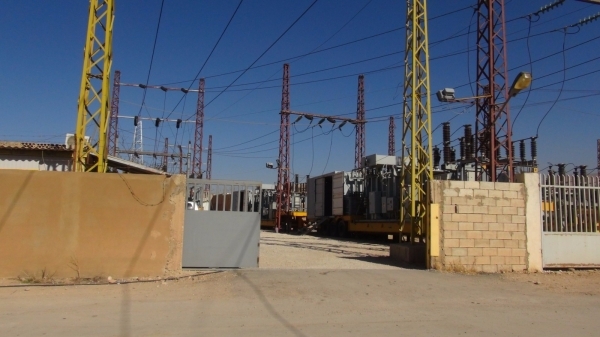Aramoun-Bsaleem Power Line : Never-ending Saga
The Beginning
The story goes back to 1998 when the Lebanese government devised an electricity plan, which was partly predicated on reducing the load of network traffic and the technical errors of transmission and practicing network control in a manner that ensured linking production plants to demand centers. The installation of a 220 kV power line to transmit electricity to Beirut and Mount Lebanon was part of the plan. To this end, the Council for Development and Reconstruction entered into a contract with an Egyptian company, ELEJECT, to carry out the works starting on February 25, 2011 and ending on May 25, 2011. ELEJECT is represented in Lebanon by PROMELEC, which is run by an engineer and former Director General of EDL, George Mouawad. The line to be installed does not exceed in length 2 kilometers.
Residents’ Objections to the works
The residents objected to the installation under the pretext that the power line would jeopardize public health and cause cancer, a risk that was earlier negated by a French electrical company. The political intervention and the support of both the Phalanges and the Lebanese Forces enflamed the protest actions and halted the planned works. The Internal Security Forces could not coerce the protesters into compliance nor force the implementation of the project. The residents’ objections to the works were based on the following arguments:
- The expropriation of near-by properties for the execution of works is an unacceptable move that would induce displacement.
- Underground cables in conformity with the latest and safest technical standards must replace overhead power lines.
- Expropriations, excavations and power pylons must all be cancelled.
- Government Decision
- Against an unwavering popular objection, the Cabinet issued Decision No. 40 on January 25, 2012 stipulating the following:
- Delegating the appraisal of the apartments located within the zone where the power lines still need to pass in the Mansourieh-Ain Najem area to the Ministry of Finance and referring the appraisals to the Higher Relief Committee so as to pay property owners who are willing to sell.
- Requesting the Council of Development and Reconstruction to resume works by February 13, 2012.
- Ordering the Internal Security Forces to attend to the execution of the works and to seek the assistance of the Lebanese Army if and when needed.
- Requesting the Ministry of Finance to submit recommendations regarding the financial outcome regarding those apartments that the state has expropriated.
Cost of the Apartments
It surmised there are 58 apartments that may be involved with the power lines. According to Eléctricité de France, these are 10 meters away and thus are technically unaffected by the electromagnetic radiations. There were three price levels that were proposed for purchasing the apartments:
- Lowest level at USD 14.4 million
- Medium level at USD 15.5 million
- Highest level at USD 16.9 million
The Ministry deemed that the residents’ call for the installation of underground cables to be costly and unscientific, arguing that it could lead to similar demands from other Lebanese towns, which would entail huge expenditure.
Demands of the Company
Besides the cost of purchasing the apartments, the company undertaking the works is also raising a number of demands about its inability to operate. As a matter of fact, ELEJECT is requesting indemnities worth USD 1,235,330 distributed as follows:
- A compensation of USD 5000 for every day of delay in receiving the sites starting from the date of signing the contract (February 25, 2011) until June 30, 2011. The compensation for total delays would thus jump to USD 630,000.
- A compensation of USD 2,200- after agreement to lower it from USD 5000- for every day of delay between July 1, 2011 and November 30, 2011, meaning a total of USD 336,600.
- A monthly compensation worth USD 18,000 for the period between December 1, 2011 and June 30, 2012, i.e. a total of USD 126,000.
- A bill for evacuating the site worth USD 142,730.
Despite the years since the initiation of the project, the completion of the Aramoun-Bsaleem power line has not been possible and remains a source of rift and political dispute. The residents refuse to have the lines installed in their towns either for political considerations or for health reasons, which have been invalidated by the Ministry of Energy and Water and Eléctricité de France. Conversely, the Ministry refuses to bury the lines underground due to several reasons including the impossibility of having this serve as the model for all Lebanese towns. It is hence offering property owners a financial remuneration in exchange for evacuating their apartments. Meantime, the contracting company claims compensation for the disruption of its works. A classic depiction of the situation in Lebanon at large! Considerable attention has been given to the Aramoun-Bsaleem power-line, while dozens of high-voltage power lines passing above houses remain forgotten and no discussions are held to gauge the risks they might impose.








Leave A Comment